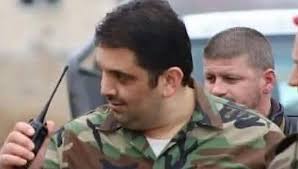Amid a political landscape fraught with security and military complexities—and against the backdrop of escalating regional tensions between Israel and Iran—Syria’s new leadership under Ahmad al-Shara appears to be doubling down on a perilous strategy: rehabilitating warlords implicated in war crimes while sidelining legitimate opposition voices.
A Troubling Rehabilitation
The recent re-emergence of Fadi Saqr, former commander of the pro-regime National Defence Forces (NDF) militia, has sent shockwaves through Syria. Saqr, accused of orchestrating documented massacres—including the 2012 killings in the al-Tadamon neighbourhood—was granted de facto immunity under the guise of “transitional justice” during a contentious press conference in Damascus last Tuesday.
Hassan Soufan, a member of the Higher Committee for Maintaining Civil Peace, defended the decision, stating that Saqr had been “granted security guarantees by the leadership” due to “the necessities of this phase”. When pressed on whether Saqr’s alleged crimes—which rights groups classify as crimes against humanity—disqualified him from such clemency, Soufan sidestepped the question, insisting transitional justice “targets only senior criminals”. The evasiveness laid bare the hypocrisy of a process that purports to break with the Assad era while recycling its enforcers.
Militias Over Institutions
Sources within the coastal region reveal a calculated rationale behind the move. Al-Shara’s transitional administration, lacking a reliable security apparatus, views the NDF’s 100,000-strong network (according to the Carnegie Endowment’s Malcolm H. Kerr Carnegie Middle East Center) as a ready-made instrument of control.
“Following the recent massacres on the coast—attributed to both Turkish-backed factions and pro-Damascus groups—al-Shara needs an experienced force to impose order,” a source told Al-Hal Net. “The NDF, despite its crimes, fits that role.”
The unspoken bargain? Saqr’s loyalty in exchange for political cover. His militia—notorious for drug trafficking and ties to Iran—could serve as al-Shara’s deniable arm, suppressing dissent while allowing the government to feign detachment from repression.
The Opposition’s Paradoxical Exclusion
This pragmatism stands in stark contrast to the exclusion of non-extremist opposition figures. While factions of the National Army (also accused of abuses) are being integrated into Syria’s Ministry of Defence, credible dissidents remain barred from state institutions. The message is clear: al-Shara prefers recycled enforcers to inclusive governance.
A Self-Defeating Strategy
Betting on warlords may provide short-term stability, but it undermines Syria’s fragile social fabric. As one activist in Damascus warned: “This isn’t transitional justice—it’s recycling injustice.” By empowering the very forces that contributed to Syria’s collapse, al-Shara risks replicating the Assad playbook: a hollow authority ruling through fear rather than legitimacy.
In a region where alliances shift like desert sands, such choices rarely endure. For Syria’s victims, time is not a healer but a thief—stealing what little hope remains for accountability.
This article was translated and edited by The Syrian Observer. The Syrian Observer has not verified the content of this story. Responsibility for the information and views set out in this article lies entirely with the author.


